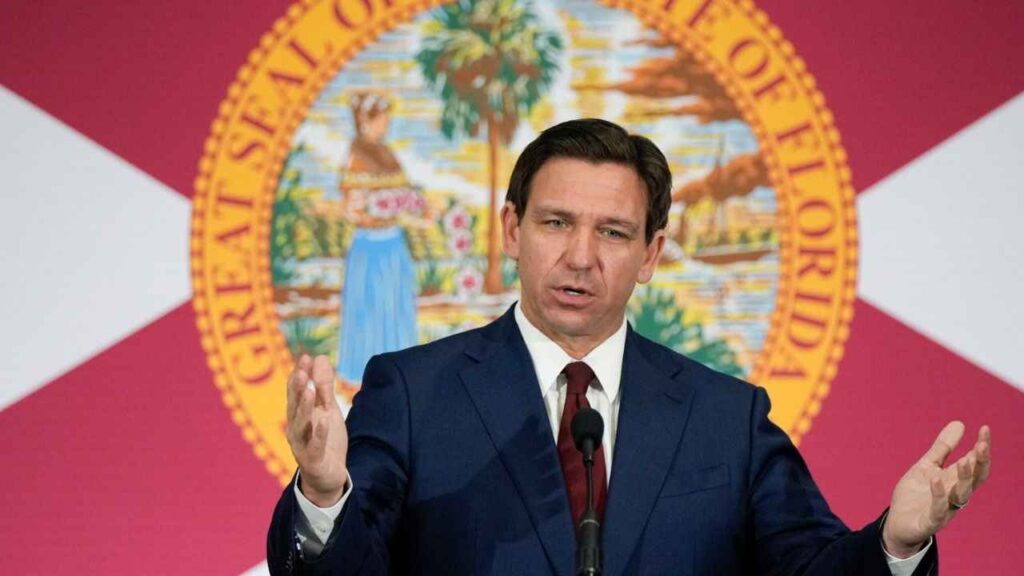The U.S. Department of the Treasury has issued a significant warning regarding Florida’s recently enacted anti-woke banking law. This new legislation, which aims to restrict certain banking practices and investments based on social and political considerations, has drawn considerable attention and criticism from federal authorities. Here’s an in-depth look at the Treasury Department’s concerns, the implications of the law, and its potential impact on Florida’s financial sector.
Overview of Florida’s Anti-Woke Banking Law
Florida’s anti-woke banking law, officially known as [insert official name of the law], was signed into effect earlier this year. The legislation restricts financial institutions from engaging in or supporting what it terms “woke” practices. This includes limiting investments in companies that are perceived to engage in political or social activism, particularly those related to environmental, social, and governance (ESG) criteria.
The law’s proponents argue that it is designed to prevent the influence of political and social ideologies on financial institutions and to ensure that banks and investment firms focus solely on financial performance. However, critics claim that it could lead to broader implications for financial markets and institutions.
Treasury Department’s Concerns
The Treasury Department’s warning highlights several key concerns regarding the new law:
- Potential for Regulatory Conflicts: The Treasury Department fears that Florida’s law could create conflicts with existing federal regulations and standards. Financial institutions operating across state lines may face conflicting requirements, complicating compliance and potentially leading to legal and operational challenges.
- Impact on Financial Stability: The law’s restrictions on investment practices could limit financial institutions’ ability to diversify their portfolios and manage risk effectively. This could have broader implications for the stability of Florida’s financial sector and its integration into the national and global financial systems.
- Concerns Over Free Market Principles: The Treasury Department has expressed concern that the law may interfere with the principles of free market competition. By restricting how financial institutions can invest and operate, the law might limit market efficiency and innovation.
- Possible Effects on ESG Investments: The legislation’s restrictions on ESG-related investments could impact the broader financial sector’s shift toward sustainable and responsible investing. ESG investments have become increasingly popular, and the law might isolate Florida’s financial institutions from this growing trend.
Implications for Florida’s Financial Sector
The anti-woke banking law could have several implications for Florida’s financial industry:
- Operational Challenges: Banks and investment firms in Florida may face significant operational challenges as they navigate the new regulatory landscape. Institutions could encounter difficulties in aligning their practices with both state and federal requirements.
- Investment Decisions: Financial institutions might need to reevaluate their investment strategies, potentially leading to a reduction in opportunities for investment in ESG-related projects and companies. This could affect the attractiveness of Florida as a hub for investment and financial services.
- Legal and Compliance Costs: The law could result in increased legal and compliance costs for financial institutions. Firms may need to invest in additional resources to ensure adherence to the new regulations and to manage potential legal disputes.
- Reputational Impact: The law could impact the reputation of Florida’s financial sector, particularly among investors and companies that prioritize ESG considerations. This could influence the state’s ability to attract and retain financial talent and investment.
Reaction from the Financial Industry
The financial industry has been vocal in its response to the law. Industry groups and financial institutions have expressed concerns about the potential negative impacts on market efficiency and financial stability. Some have called for revisions to the law to better align with federal regulations and industry best practices.
Political and Legal Responses
The law has sparked a political debate in Florida and beyond. Supporters argue that it is necessary to prevent political and social agendas from influencing financial practices. Opponents, including many financial and business leaders, argue that the law could have detrimental effects on the state’s economy and financial sector.
Legal challenges to the law are possible, as affected parties may seek judicial review to address concerns about its constitutionality and impact on federal financial regulations.
Moving Forward
As the situation develops, it will be crucial to monitor the ongoing responses from both the Treasury Department and the financial industry. Potential amendments to the law or federal interventions could reshape its impact and address some of the concerns raised.
In the meantime, financial institutions operating in Florida should stay informed about the legal landscape and work closely with legal and compliance experts to navigate the new regulatory environment.
Conclusion
The Treasury Department’s warning about Florida’s anti-woke banking law underscores the complex interplay between state and federal regulations and the potential impact on the financial sector. As the law continues to evolve, stakeholders must carefully consider its implications and work towards solutions that balance regulatory requirements with the principles of market efficiency and stability.



